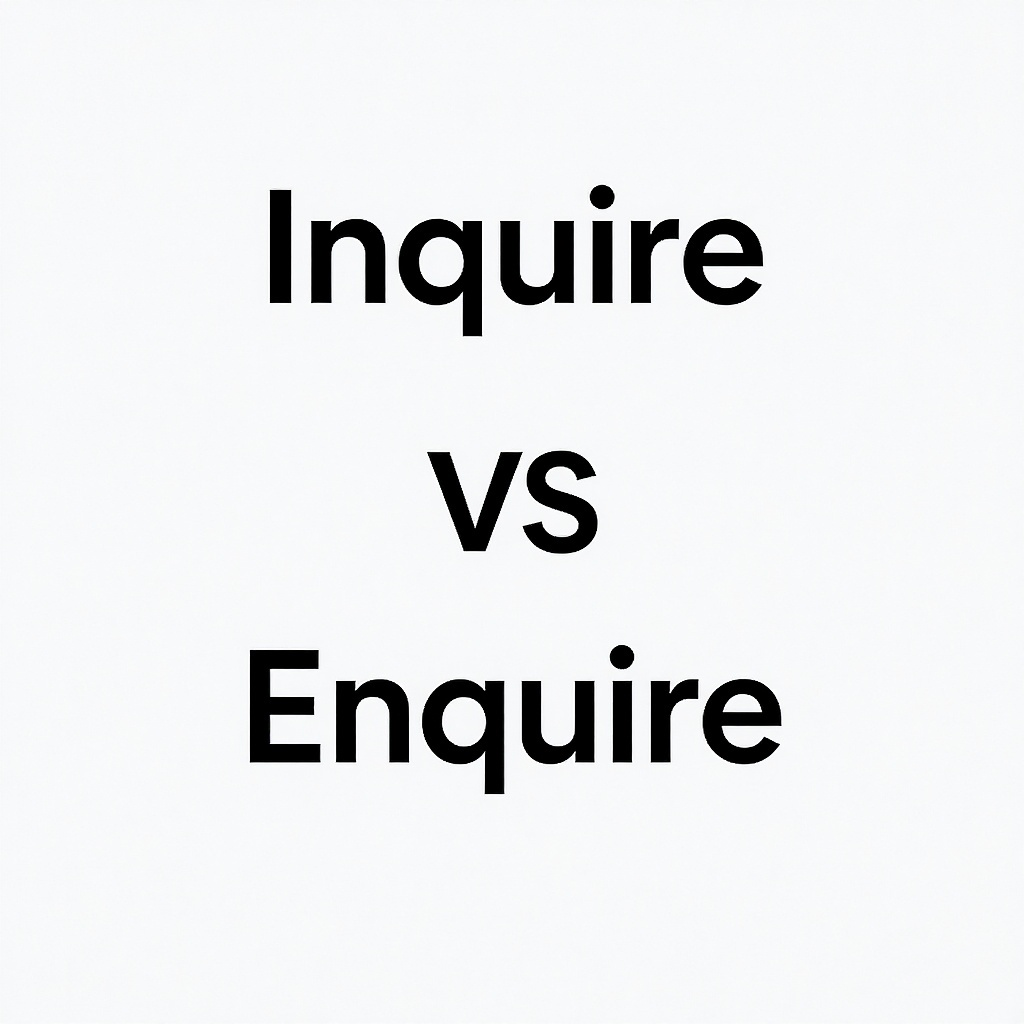"Inquire" Vs "Enquire" - What's the Difference

If you’ve ever paused mid-sentence and wondered whether you should write “inquire” or “enquire,” you’re not alone. These two spellings often confuse English learners—and even native speakers—because they sound the same and overlap in meaning. But here’s the truth: the difference has more to do with history and region than with meaning.
Midoo AI is here to untangle the story for you so you can use both words confidently.
A Shared Beginning
Both inquire and enquire come from the same Latin root inquirere, meaning “to seek information.” For centuries, the two spellings have been used interchangeably. Over time, though, preferences developed between British and American English.
- In American English, inquire is the standard spelling.
- In British English, both appear, but some writers try to make a distinction between the two.
Subtle Distinctions in British English
While dictionaries in the UK usually accept both, you’ll sometimes see a style guide draw a fine line:
- Enquire → general asking or questioning.
- Inquire → more formal or official investigations.
Example:
- She called to enquire about the job opening. (general question)
- The police will inquire into the incident. (formal investigation)
This distinction isn’t strict, though. Many British speakers use the two words interchangeably, and no one would blink an eye.
American English Preference
In the United States, the situation is simpler: inquire dominates in nearly every context. Whether you’re asking a casual question or filing an official investigation, inquire is the go-to spelling.
For example:
- I called to inquire about my order.
- The committee will inquire into the issue.
“Enquire” looks unusual to most American readers.
Everyday Uses
Here are some common phrases where you’ll spot these words:
- Inquire about → to ask for details.
- I’d like to inquire about the price.
- Inquire into → to investigate formally.
- The board will inquire into the company’s finances.
- Enquiry desk / Inquiries desk → the place you go to ask questions, often in airports or train stations.
- Please visit the enquiries desk for more information.
- Make an inquiry → to request information.
- I made an inquiry about their services.
Comparison Snapshot
| English Variety | Preferred Spelling | Notes |
|---|---|---|
| American | Inquire | Standard for both casual and formal use |
| British | Inquire & Enquire | Both correct; some prefer “enquire” for general questions and “inquire” for formal matters |
How to Choose the Right One
If you’re writing for a global audience, go with inquire. It’s recognized everywhere and avoids confusion.
If you’re writing specifically for a British publication or audience, you can safely use enquire in casual contexts and inquire in formal ones. But even then, consistency matters more than following the subtle difference.
FAQs
Is “enquire” wrong?
No. It’s perfectly acceptable, especially in British English.
Do Americans ever use “enquire”?
Rarely. It looks odd in U.S. writing.
Should I always use “inquire” in formal writing?
Yes, especially if your audience includes Americans.
Which is more common worldwide?
“Inquire” is more common overall because of American English influence.
Is “enquiry” the same as “inquiry”?
Yes. Like the verbs, “enquiry” tends to be British and “inquiry” tends to be American.
Final Thoughts
The choice between “inquire” and “enquire” depends less on meaning and more on audience. In the U.S., always stick with inquire. In the U.K., you might see both, with a loose distinction between casual and formal use.
So, when in doubt? Go with inquire. It’s truly the safer bet worldwide.